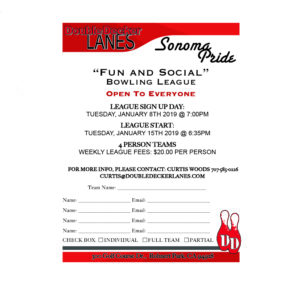On February 9, 10 and 11, 2019, the Santa Rosa Symphony (SRS) presents “Love Letters,” celebrating women and love. Guest conductor Sarah Ioannides will lead the orchestra for this concert, which begins with Fanny Mendelssohn-Hensel’s Overture in C major and ends with her brother Felix Mendelssohn’s Symphony No. 3, Scottish. After Fanny’s overture, Out Trans Artist Sara Davis Buechner plays Clara Schumann’s Piano Concerto in A minor. Clara’s husband Robert’s Overture to Manfred completes this Valentine’s weekend concert.
“Love Letters” will be performed on Saturday, February 9, at 7:30 PM; Sunday, February 10 at 3 PM and Monday, February 11 at 7:30 PM at Weill Hall in Sonoma State University’s Green Music Center. Additionally, the Discovery Rehearsal, which is general seating, happens at 2 PM on Saturday, February 10. The concert experience is further enhanced with pre-concert talks, given by SRS Cultural Historian and Musicologist Kayleen Asbo PhD, one hour prior to performances (except the Discovery Rehearsal). These informative 30-minute talks conclude with a Q & A period.
Program notes, a Spotify playlist of the works and an overview video with Dr. Asbo are available on the concert event page. Tickets range from $24 to $87 and may be purchased online, in person or by phone (see below). In addition, for each adult ticket purchased, the ticket holder may request a free ticket for a youth, ages 7 to 17, to accompany them.
Sara Davis Buechner has been praised worldwide as a musician of “intelligence, integrity and all-encompassing technical prowess” (New York Times); lauded for her “fascinating and astounding virtuosity” (Philippine Star), and her “thoughtful artistry in the full service of music” (Washington Post); and celebrated for her performances which are “never less than 100% committed and breathtaking” (Pianoforte Magazine, London). Japan’s InTune magazine says: “When it comes to clarity, flawless tempo selection, phrasing and precise control of timbre, Buechner has no superior.”
In her twenties, Davis Buechner won awards from the world’s première piano competitions – Queen Elisabeth of Belgium, Leeds, Salzburg, Sydney and Vienna. She won the Gold Medal at the 1984 Gina Bachauer International Piano Competition, and was a Bronze Medalist of the 1986 Tschaikowsky International Piano Competition in Moscow.
A dedicated Yamaha Artist for more than 30 years with a repertoire of more than 100 concertos, Davis Buechner has appeared as soloist with many of the world’s prominent orchestras. In 2016, she joined the piano faculty of the Boyer College of Music and Dance at Temple University in Philadelphia. She has presented lectures and masterclasses worldwide, notably at the Royal Academy in London, the Juilliard School in New York City, Indiana University, the Eastman School of Music, Shanghai Conservatory and the Kobe-Yamate Gakuen in Osaka, Japan. Read her full bio here.
Described by the New York Times as a conductor with “unquestionable strength and authority” and “magic,” Sarah Ioannides’ dynamic presence on the podium has won praise from audience and critics internationally. Ioannides, now in her fourth season as Music Director of Symphony Tacoma, has gained recognition as one of the most engaging and respected conductors of her generation. She previously served as music director for the Spartanburg Philharmonic Orchestra (2005-2012) and the El Paso Symphony (2005-2011).
Ioannides, whose guest engagements span six continents, was listed as one of the top twenty female conductors worldwide by Lebrecht’s “Woman Conductors: The Power List” in 2016. The Los Angeles Times declared that she is “one of six female conductors breaking the glass podium” and she was praised in the New York Times as part of “a new wave of female conductors in their late 20’s through early 40’s.” In addition, she was awarded the JoAnn Falletta award for the most promising female conductor. Read her full bio here.
Concert Times and Location
Saturday, February 9, and Monday, February 11, at 7:30 PM, Sunday, February 10, at 3:00 PM
Discovery Open Rehearsal is Saturday, February 9 at 2:00 PM
All performances are at Weill Hall, Green Music Center, Sonoma State University.
Tickets are available by phone, online and in person as follows: (707) 546-8742; srsymphony.org; or Santa Rosa Symphony Patron Services, 50 Santa Rosa Ave., Santa Rosa (Weekdays 9:00 AM – 5:00 PM, opening at 10:30 AM Wednesdays)
Free tickets for youth, ages 7-17. Patrons may request ONE FREE ticket for a youth 7-17 with each paid adult ticket to a Classical Series concert. This offer is not available online, but may be requested by phone or in person.
Sponsors
Supporting sponsor: The E. Nakamichi Foundation
Sarah Ioannides underwritten by Ava & Sam Guerrera
Sara Davis Buechner underwritten by Linda Castiglioni
Media sponsor: The Press Democrat
Discovery Open Rehearsal Series sponsored by The Stare Foundation and David Stare of
Dry Creek Vineyard
Pre-concert talks sponsored by Jamei Haswell and Richard Grundy
Additional support provided by the County of Sonoma – Board of Supervisors







